Ashley: We bonded instantly over being some of the only female supervising directors to have handled irreverent and offensive adult content, but we’ve done it in very different eras. What was it like for you as a woman at the helm of Beavis and Butt-Head?
Yvette: In the days that I started in my career, it was a rarity to be working in animation at all, so I’ve never really seen myself as a woman in the industry. Also, I never really saw the show or characters as offensive. Irreverent, yeah. But to me it was just smart and funny. I had been told before I started that it was really offensive, but when I was brought in to have a look, I thought it was adorable and innocent! That might have to do with being brought up in Brooklyn. I had lots of bad boys around!
Ashley: Similar to your experience, I didn’t think of myself as a “female artist” until I started directing. Then, I started getting a sense that other people were viewing me that way. I’m pretty assertive and very comfortable with adult content. I have a great relationship with my showrunners and have never received any doubt in my ability because of gender, because they know I have the brass to do this weird stuff. Even though I’m very comfortable in it, I am also very aware that it’s an extremely small club to have supervised a show as a woman and an even smaller club to supervise something meant for adults.
Yvette: A small lucky club. I do remember going for an interview early on, before I was a director, when I was an animator, and I was told by the head animator that he loved my work. He said, “you would’ve been great for us to have here, except we already have…” and he pointed at a girl. I look around and I see all these young boys, and I’m like, why would I be great to do what she does? I think I was so in my own head that I thought, she must be the same type of animator I am. It was only later that I was like, duh!
Ashley: For me, I wouldn’t say becoming a supervising director was luck necessarily. I had to make my interests known. Also, convincing a studio that, yes, a woman is ready for this position. I see a lot of female departmental supervisors, but you don’t see a woman at the very top very often. I guess that begs the question: Do studios not think a woman can handle the full package? Oops…That sounds like a dirty joke.
Yvette: (Laughs) That’s an amazing perception. For me, it was the higher up I got… It was really me going into features and dealing with the male execs. That’s where all the trouble started.
Ashley: I’d like to say that there’s more visibility for women in adult content now. A lot of that’s thanks to the internet. At the same time, you and I couldn’t name many other female supervising directors [in adult animation]. It means they’re not getting promoted in press by their studios or by their shows. Growing up, there just wasn’t access to as much behind-the-scenes information. If I was lucky, maybe there’d be a making-of feature at the end of a VHS and I’d learn a few names. But I don’t remember seeing very many women in powerful positions interviewed. I look back at how furious my mom was when I went to see Beavis and Butt-Head Do America in theaters and, I wonder, if she had known that a woman co-directed it, could she have viewed this as more of a role-model situation instead of a bad influence.
Yvette: She never could have known because I was not credited as co-director on the film. My credit was as Animation Director. When I was first approached by the execs about directing the movie with Mike [Judge], I was told—with apologetic camaraderie—that they wouldn’t be able to give me the actual credit because Mike needed the solo credit for his career. I was so delighted with the prospect of directing the movie that I gleefully agreed, “Sure!! I don’t care! I just want to do it! Thank you!!” My educated guess is that being a woman had quite a bit to do with both their comfort in asking me to take the role without the credit and definitely with my gleeful affirmative reply. All these decades and challenges later, I am still truly grateful for the opportunity as it was the greatest and most joyous experience of my life but it was not a wise decision for my career. I’d never want that to happen to another woman, though I’m sure it has, many times. Women need to be aware and insist on better for themselves.
Ashley: That’s why I think it’s important to publicize women in adult content, because it lets younger people know that it is a viable place for you. So how has your personal experience shaped the way that you approach leadership?
Yvette: Some of the qualities that I know I fell short on are the ones that I’ll talk about. Because if I ever was given a chance, I’d hope that I would do better. I wish that I had acknowledged the hard work and dedication of my crew more than I did. I’ve learned after my leadership position, seeing other really strong leaders or hearing from people who love their showrunners or directors, because of that generosity of gratitude. I was so fixated on the show that I was sometimes flippantly critical and perhaps even hurtful. I had a crew that jumped through hoops for me and yet I often forgot to say, “Thank you.” I have regrets about that. I also think a good leader needs to realize they don’t have all the answers. Happily, I think I did better at that. I celebrated and gave credit to many great ideas including one that saved my butt like when I directed the “Cornholio” episode when Beavis eats a lot of candy and turns into this lunatic alter ego, sprouting gibberish, like a kid on a sugar high. We finished the episode; it came back from post and we’re screening it for the whole crew. Everyone’s hysterically laughing and I’m so proud. I look into the group and there’s this one very experienced, grouchy, older guy with his arms crossed. I went, “What, you didn’t like it?” He’s like, “I’m confused. Why was he going crazy?” And I said, “What are you talking about? He ate all the candy. Don’t you realize when he went to the cabinet…” Then all of a sudden, I just stop and realize, “Holy shit!” I never had a close-up of the candy in the cabinet. I yelled, “Stop the presses.” And, immediately added a held close up of candy. Marty Polansky saved me and “Cornholio” both.
Ashley: It’s important to be willing and able to admit that you’re super busy, you’re super tired, and you might have missed something. All of us make mistakes. Even the people at the top. I was determined to be the type of boss who I would have liked to have. The people I respect the most are the ones who invested their time and energy in me, even when they had nothing to gain from it. And so I try to do that. Even if I’m very busy, I try to invest time and energy into my people to help them reach their goals. They can’t work for me forever. They need to move forward and up. I think a good supervisor advocates for their people and is willing to get back down in the trenches and work if they need to. Do you think there are ways that women can serve as mentors to one another to help each other succeed?
Yvette: I’m available to be a mentor to anyone who asks. Seriously, though, I noticed something during a meeting with women discussing mentorship that gave me pause and I think we have to acknowledge, unfortunately, that there is a competitive streak. We’ve had to fight for attention our whole lives so when we finally get it, we want to hold onto it. I think that it’s going to take some really deep self-reflection and honest, brave conversation for women to love and really support each other, you know?
Ashley: Woman on woman rivalry in the industry is a very real thing and I’ve had some negative working experiences. I think that insecurity is at the root. I agree that a lot of girls are raised to second guess themselves. How young were you when you first became aware of the idea of being popular or the idea of beauty pageants? Then being in a male-dominated industry, maybe that cranks up the pressure even more. What people have failed to realize is there’s room for more than one woman, especially now. My friend, Sidney Clifton, has this saying: “Empowering my sister does not disempower me.” If I invest in you, that doesn’t take anything away for me. So I am going to encourage the women on my crew to negotiate for higher wages so they can assert some control over their futures. I encourage them to speak up in meetings and I make sure they get identified and heard in those meetings. These are super small things that we can do to be supportive and non-competitive. My work life has become so much richer now that I have a circle of women who I trust.
Yvette: I think irreverent comedy, adult content is the place to shine a spotlight on society and humanity and human weaknesses. So, that’s the responsibility. It’s a challenge. But I know that the best writers are up to it and we visualize what they’ve written to help that.
Ashley: You’re right. Good, irreverent comedy reflects the world back at itself, and that’s something you’ve mentioned to me, that a lot of people didn’t get about Beavis and Butt-Head. On Paradise, we do a lot of jokes about farts and erections. I’m not going to tell you we don’t do those, but we do some very smart social commentary too. Come for the toilet humor, stay for the enlightened conversation! And, hopefully, you get some people to think about topics they would not have otherwise. We don’t, as supervising directors, have control of the content. But if you’re lucky, like I am, you have a relationship where your showrunners are willing to have a dialogue.
Yvette: Geena Davis has an organization. I forgot what it’s called now, but it’s kind of a watchdog. I’ve heard her speak about things like making sure your crowd shots are a realistic representation.
Ashley: I’m glad you brought up the Geena Davis Institute on Gender in Media. After attending a discussion about that, I made better onscreen inclusion and representation a real priority in season two of Paradise. I thought, well, that’s such a simple thing that we can do, because I have absolute control over who my crowds are. That’s been a mandate for my designers, my board artists, and my directors. They’re all really wonderful at featuring women and people of color in the world of Paradise and giving them positive portrayals. There’s so much more we can do to change the culture for the better in real life and on the screen. There was an episode where we needed a featured sexy woman, and the director and I were adamant about making sure she wasn’t just white and blonde. Breaking that mold is a bigger deal than you would think it should be.
Yvette: Irreverent comedy always breaks the mold.
Ashley: Well, I’m proud to be a mold breaker with you!

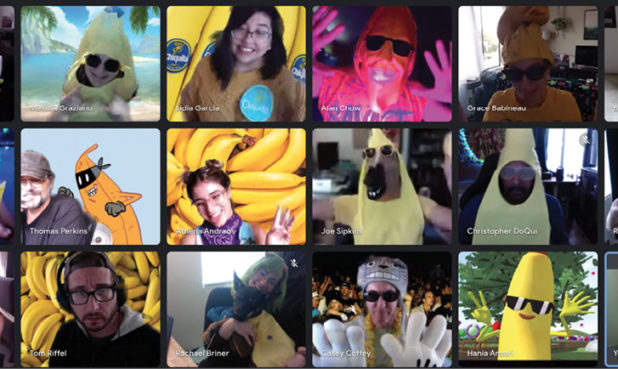
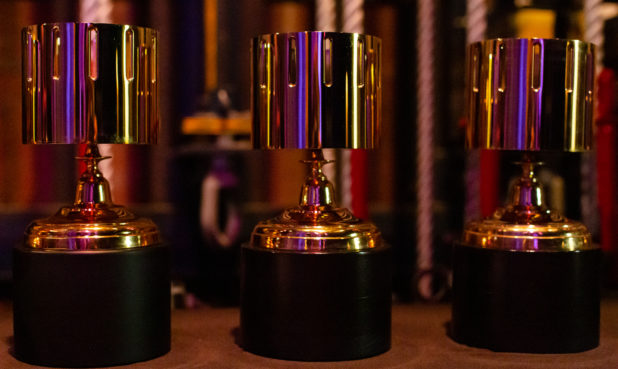
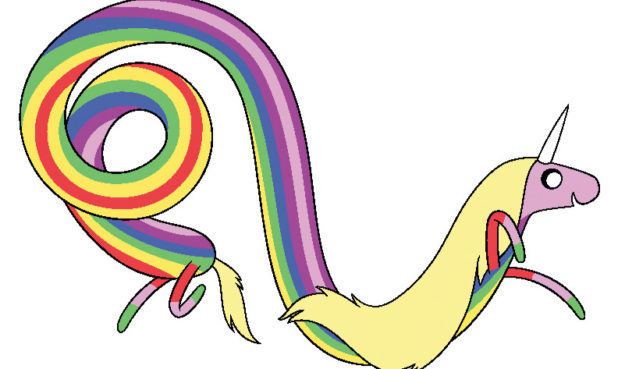
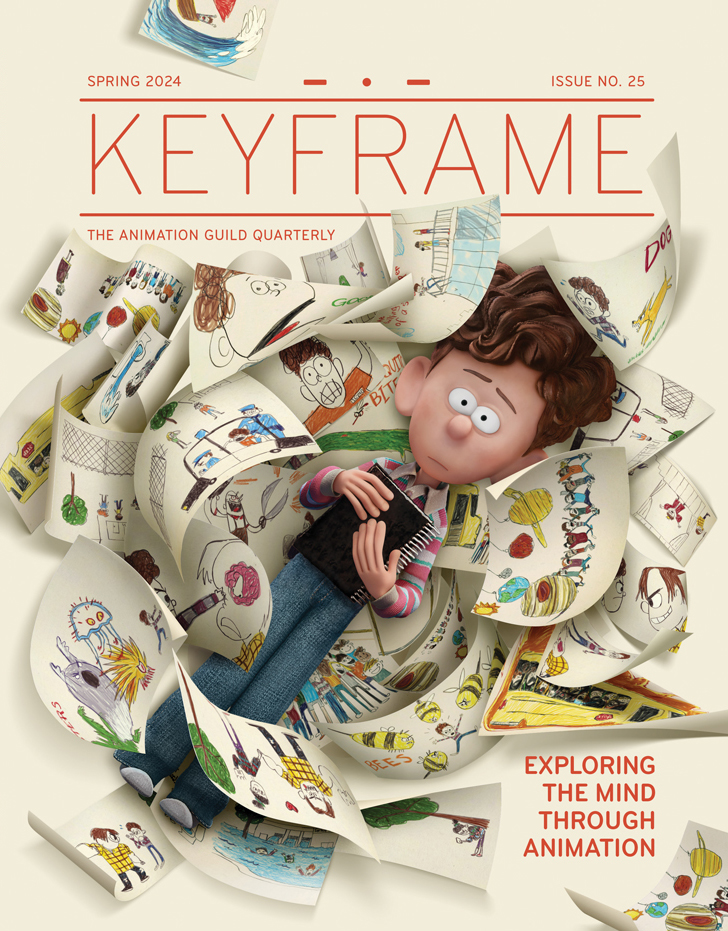
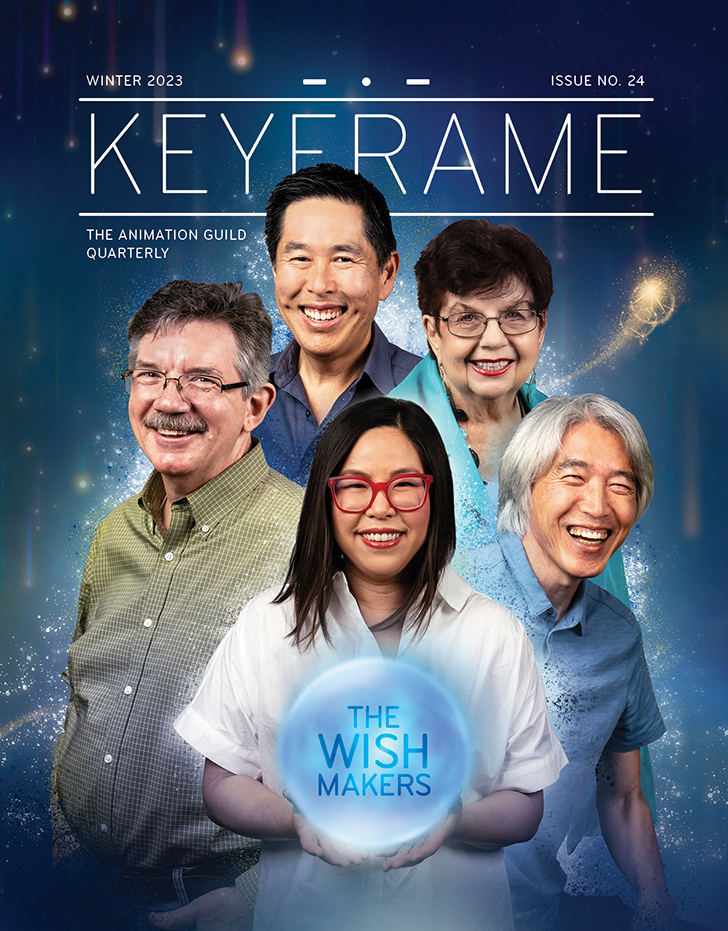
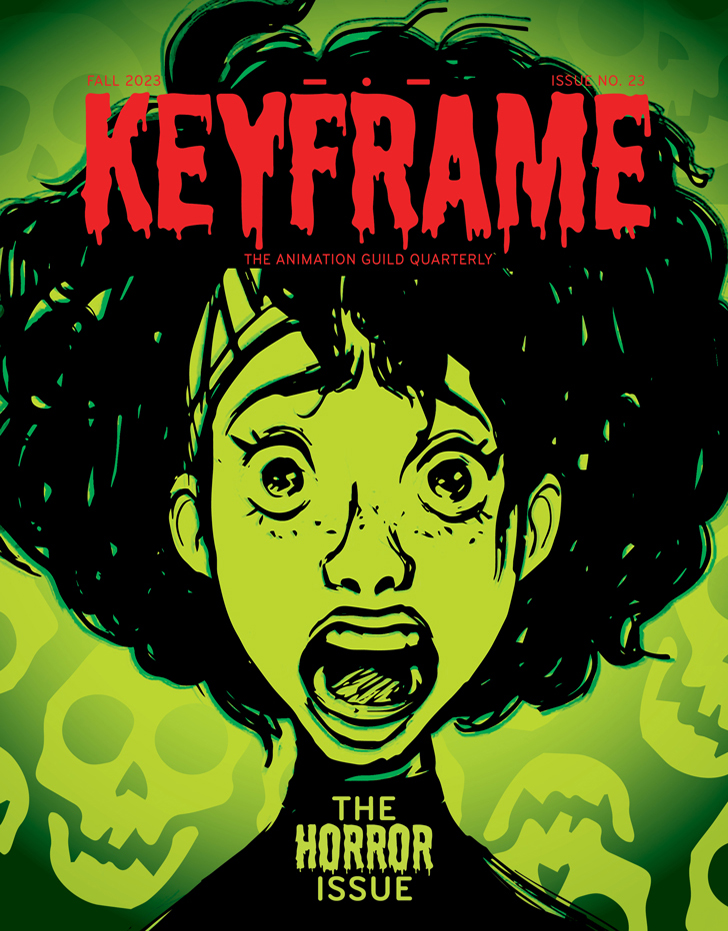
.png)